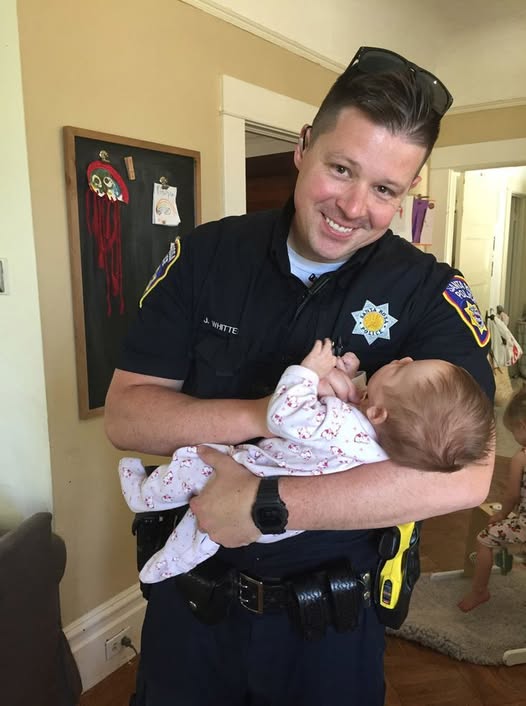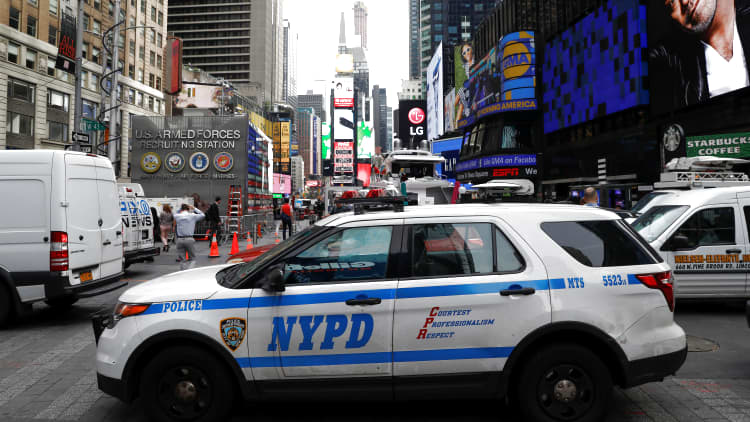That morning began like any other patrol in Modesto’s quiet park, until I spotted her: a young woman, barefoot and shivering in a thin hoodie, curled on a bench. When I asked if she was alright, her eyes were glassy as she whispered, “I’m just trying to keep her warm.” That’s when I saw the tiny bundle resting on her chest—a newborn, no more than a week old.
Her name was Kiara. At nineteen, she’d recently aged out of foster care, delivered her baby in a motel room, and found herself living on the streets. The infant’s name was Nia, but there were no birth records, no papers—just a mother and child clinging to each other for survival. I radioed for backup but felt compelled to stay; Kiara wasn’t under the influence or in denial—she was simply exhausted and terrified. Together we made our way to a shelter, and I assumed my role would end there.
A week later, I returned. Then again the week after. Kiara began to lean on me, asking which diapers were most reliable and how to know if Nia ran a fever. Her trust grew, and one afternoon she pulled me aside, voice trembling: “I’m not ready to be a mom. But you… you care. Nia smiles whenever she sees you.”
I was stunned. Adoption had never crossed my mind that way. I told her I’d consider it, then sat alone in my car outside the station that night, tears streaming down my face. I’d never changed a diaper or installed a car seat, but walking away felt impossible.
Car tires
Navigating the adoption process proved a labyrinth of checks and interviews. Child Protective Services launched an investigation, the shelter flagged my involvement as a conflict, and for two long months I wasn’t allowed to see Nia. In that time, Kiara worked tirelessly—joining a transitional program, taking parenting classes, finding part-time work—leaving me to wonder if she’d reclaim her daughter.
Then one morning her voice broke over the phone: “I can’t give Nia what she needs, but you already do.” In that moment, she chose the greatest act of love: letting go. Once her rights were signed over, the paperwork moved swiftly. I learned to soothe colic, discovered the magic of a swaddled baby’s calm, and balanced midnight feedings with twelve-hour shifts.
My fellow officers rallied around us: one donated a crib, another dropped off formula and bottles. The chaos and beauty of those early days became my new normal. Then, in a sunlit courtroom, the judge looked at me and said, “Congratulations, Mr. Duvall.” I wept as I stood to accept the title of father.
I named her Nia Grace Duvall, honoring the name Kiara chose and the grace she showed. Now four years old, Nia’s laughter fills our home—she dances in her socks, insists on pancakes for breakfast, and wraps her little arms around me to say, “I love you, Daddy.” Every time, I’m reminded of that park bench and how close she came to slipping through the cracks.
I never planned to become a dad that day, but Kiara’s courage and Nia’s smile taught me that the most profound blessings often arrive unawares. If you ever have the chance to help someone—even when it’s hard—lean in. Love sometimes shows up in a hoodie, holding onto hope, waiting for someone to say, “I see you, and I’ve got you.”




